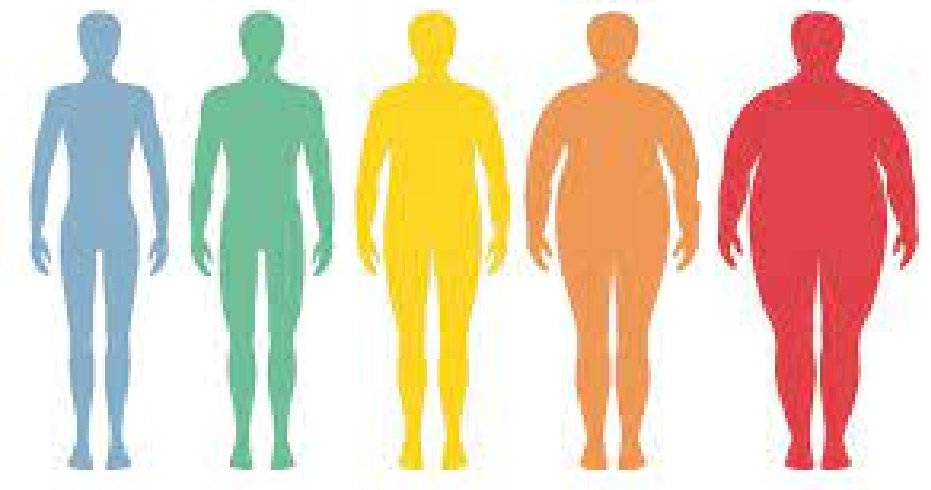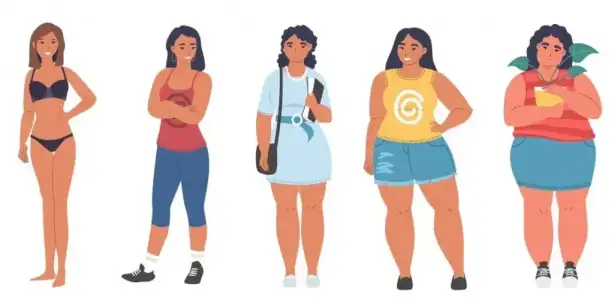Why Do We Get Fat, Why Can’t We Lose Weight?

What is obesity? How common is it, how is it diagnosed?
We give the name obesity to an increase in the amount of fat that poses a health risk in the body. Obesity, one of the most precious epidemic diseases of our age, also plays a role in the emergence of nearly two hundred diseases, especially diabetes, cardiovascular diseases and cancer. More than 2 billion people in the world are overweight and 2 are obese. In Turkey, one out of every three adults is overweight, another has obesity, while only one has body weight within the usual limits. For example, the data in our country shows that three out of every 10 children are overweight.
We diagnose obesity when the body mass index (BMI), which is obtained by dividing the body weight in kilograms by the square of the height in meters, is over 30 kg/m2. We define this number as being in the middle of 25-30 as overweight. However, these numbers may not fully reflect the fat ratio in the body in some individuals. The fact that the waist circumference measured from the level of the navel is above 80 cm in women and 94 cm in men is called apple type obesity. This situation carries a higher health risk compared to increased fat in the hip area, that is, pear-type obesity. We also make other evaluations in our patients that we follow up and treat due to obesity.
What causes obesity?
It is not a situation that develops due to personal mistakes of the person and under his own control. We can define obesity, which is a chronic, complex, progressive and recurrent disease, as our body’s usual response to the unusual environment that our genes and metabolism are not accustomed to. Dietary habits and inactivity are very valuable in the development of obesity, but many factors such as mood disorders, tension, insufficient sleep, changes in our gut microbes and hormone disruptors that we are exposed to from our environment make it easier for our body to store fat.
Is there a connection between obesity and COVID19?
Obesity and COVID19 disease negatively affect each other. Obesity increases the need for hospitalization, heavy care and assisted breathing apparatus in COVID19 patients by 30-80 percent. It aggravates the disease by causing disorders on respiration, heart, metabolism, immune and coagulation systems. With the epidemic measures, decrease in physical activity, deterioration in eating and drinking behaviors, socioeconomic difficulties and psychosocial status disorders occur. The reflection of all these on our power metabolism is a tendency to increase in weight in both obese and non-obese individuals.
What to do for weight control?
Private branches, non-governmental organizations and governments have valuable missions in the prevention and management of obesity. In an individual with obesity, “eating less and moving more” alone does not provide a permanent solution. I define them with the 4 letters of the word “BUSE”. The letter “B” is nutrition. It is absolutely necessary to have a healthy, stable and sufficient diet. We are already consuming too much saturated fat, sugar and processed foods. On the other hand, we consume less fibrous foods, we do not eat natural and varied foods. For example, the consumption of five servings of vegetables and fruit a day alone reduces the risk of obesity, cardiovascular disease and diabetes by 30 percent. The letter “U” represents sleep. Attention should be paid to six to eight hours of uninterrupted night sleep. Less or more is a health risk. The letter “S” represents tension. It is not possible to control body weight without controlling tension. In case of high tension, the body retains extra fat, especially around the internal organs and abdomen. If the last letter is “E”, it’s training. Permanent weight control cannot be achieved without moving. For this reason, training should be done at a sufficient level by following individual precautions during the epidemic period. With the “BUSE” formula, it is possible to control weight and keep the immune system strong.
Spring 2022 / Pharmetic Health Magazine
prof. Dr. OKAN BÜLENT YILDIZ Hacettepe University Faculty of Medicine Department of Endocrinology and Metabolic Diseases
- On-Site Comments















Comment